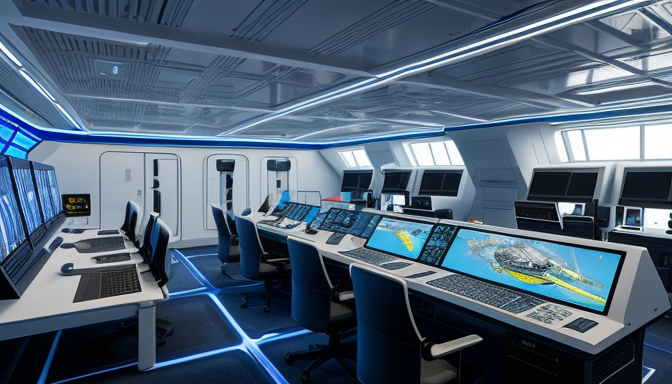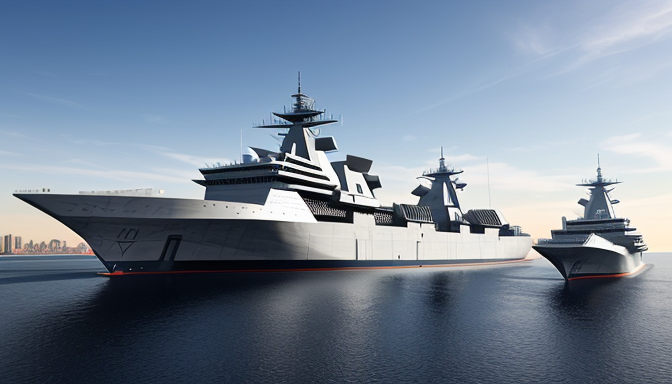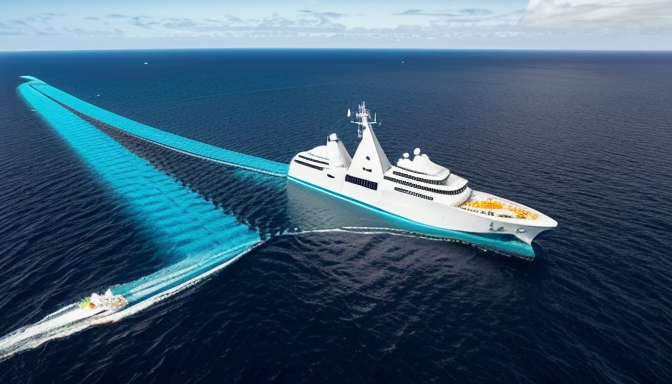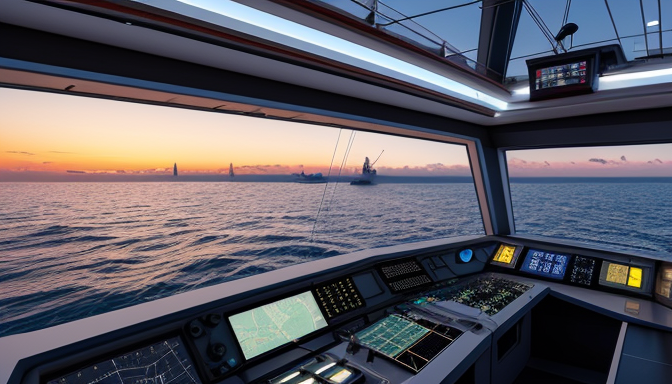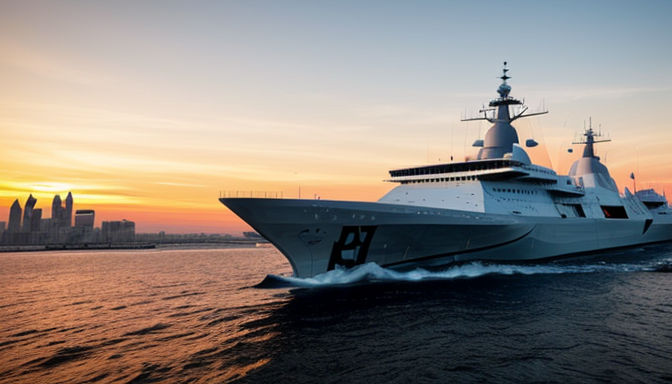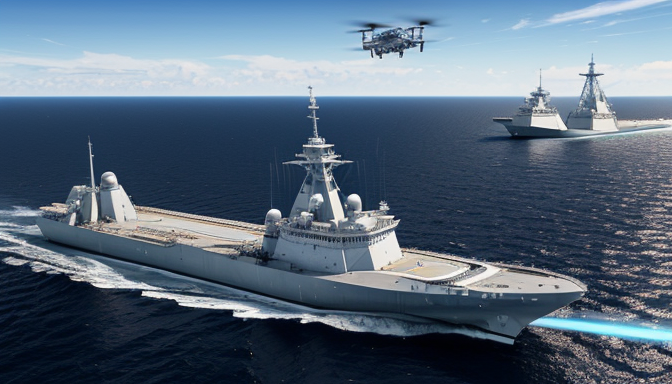Why Naval Engineering is the Next Big Thing in Tech
The world is rapidly evolving, and naval engineering is riding the wave of change, making it a crucial player in the tech landscape. Imagine a world where ships are not only designed for efficiency but also for sustainability. This is not just a dream; it’s happening right now! Innovations in ship design are pushing boundaries, integrating advanced materials that are lighter yet stronger, allowing vessels to navigate the high seas with unparalleled agility.
One of the most exciting developments is the rise of green propulsion systems. These systems are transforming how we think about maritime travel. By harnessing renewable energy sources, such as wind and solar, naval engineers are crafting ships that significantly reduce their carbon footprint. It’s like turning a massive oil tanker into a sleek, eco-friendly yacht—what a game changer!
Moreover, the field is witnessing a surge in marine innovations that enhance safety and operational efficiency. For instance, automation technologies are now being implemented to monitor ship performance in real-time, minimizing human error and maximizing safety. With the maritime industry increasingly focusing on smart shipping, the future looks bright for those venturing into naval engineering.
So, whether you’re a tech enthusiast or someone looking for a career path that merges innovation with environmental responsibility, naval engineering is where the action is. Get ready to dive into a field that’s not just about building ships but about shaping the future of our oceans!
Innovations in Naval Engineering
In the ever-evolving world of technology, naval engineering is making waves like never before! Imagine a field where cutting-edge ship design meets eco-friendly practices. That’s the reality we’re diving into today. With advancements in green propulsion systems, naval engineers are not just building vessels; they’re crafting the future of maritime travel. These innovations are crucial, as they help reduce our carbon footprint while enhancing the efficiency of marine operations.
One of the most exciting developments is the integration of automation in ship design. Think about it: vessels that can navigate and operate with minimal human intervention! This not only improves safety but also maximizes operational efficiency. With the rise of smart ships, equipped with advanced sensors and AI, the maritime industry is transforming into a high-tech arena where data drives decisions.
Moreover, the use of advanced materials is revolutionizing shipbuilding. Lightweight yet durable composites are replacing traditional materials, making ships faster and more fuel-efficient. This shift not only enhances performance but also contributes to sustainability. Imagine ships that can travel longer distances on less fuel, thanks to innovations in material science!
In summary, the innovations in naval engineering are not just about building better ships; they are about creating a sustainable and efficient future for the maritime industry. With every new technology, we are steering towards a horizon filled with possibilities, where the oceans are not just highways but gateways to a greener world.
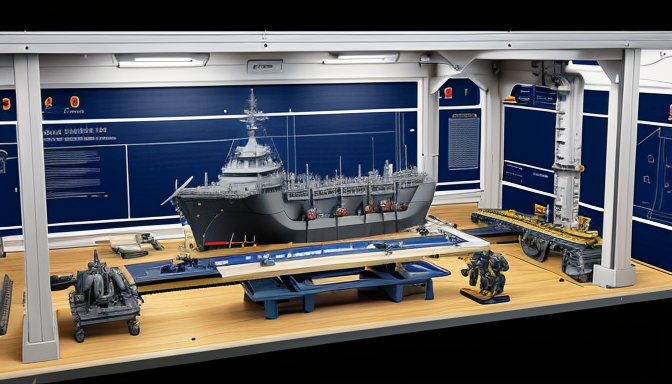
Career Opportunities in Naval Engineering
When it comes to naval engineering, the horizon is brimming with exciting career opportunities that are as vast as the oceans themselves. This field is not just about building ships; it’s about crafting the future of maritime technology. Imagine being at the forefront of cutting-edge ship design, where your creativity and technical skills converge to create vessels that are not only functional but also environmentally friendly. With the rise of green propulsion systems, naval engineers are now tasked with innovating solutions that reduce emissions and enhance sustainability.
Moreover, the demand for skilled professionals in this sector is skyrocketing. Industries are eager for engineers who can navigate the complexities of marine innovations and integrate advanced technologies like automation and artificial intelligence into their designs. Think about it: every new ship or marine structure you help design could potentially change the way we interact with our oceans, making them safer and more efficient.
Career paths in naval engineering are incredibly diverse. You might find yourself working in research and development, where you can explore groundbreaking concepts, or in project management, where you oversee the entire lifecycle of a vessel. There are also opportunities in regulatory compliance, ensuring that new technologies meet safety and environmental standards. As the maritime industry continues to evolve, so too will the roles within it, making this an exciting time to dive into a career in naval engineering.
Frequently Asked Questions
- What is naval engineering?
Naval engineering is the branch of engineering that focuses on the design, construction, and maintenance of ships, submarines, and other marine vessels. It combines elements of mechanical, electrical, and materials engineering, making it a vital field in the maritime industry.
- Why is naval engineering becoming more important?
With the rise of automation, sustainable practices, and advanced materials, naval engineering is evolving rapidly. This growth is crucial for enhancing maritime operations and addressing environmental concerns, making it a key player in the tech landscape.
- What career opportunities are available in naval engineering?
There are numerous career paths in naval engineering, including roles such as naval architect, marine engineer, and systems engineer. These positions offer diverse opportunities for growth and specialization in a dynamic and innovative field.
- What skills are essential for a career in naval engineering?
Key skills include strong analytical abilities, problem-solving skills, and proficiency in computer-aided design (CAD) software. Additionally, teamwork and communication skills are vital, as projects often involve collaboration across various disciplines.
- How can I get started in naval engineering?
Starting a career in naval engineering typically requires a degree in engineering, preferably with a focus on marine or naval engineering. Gaining practical experience through internships or co-op programs can also be incredibly beneficial.
